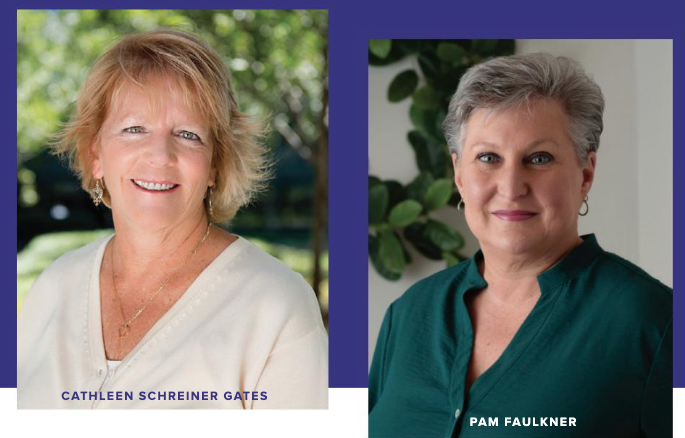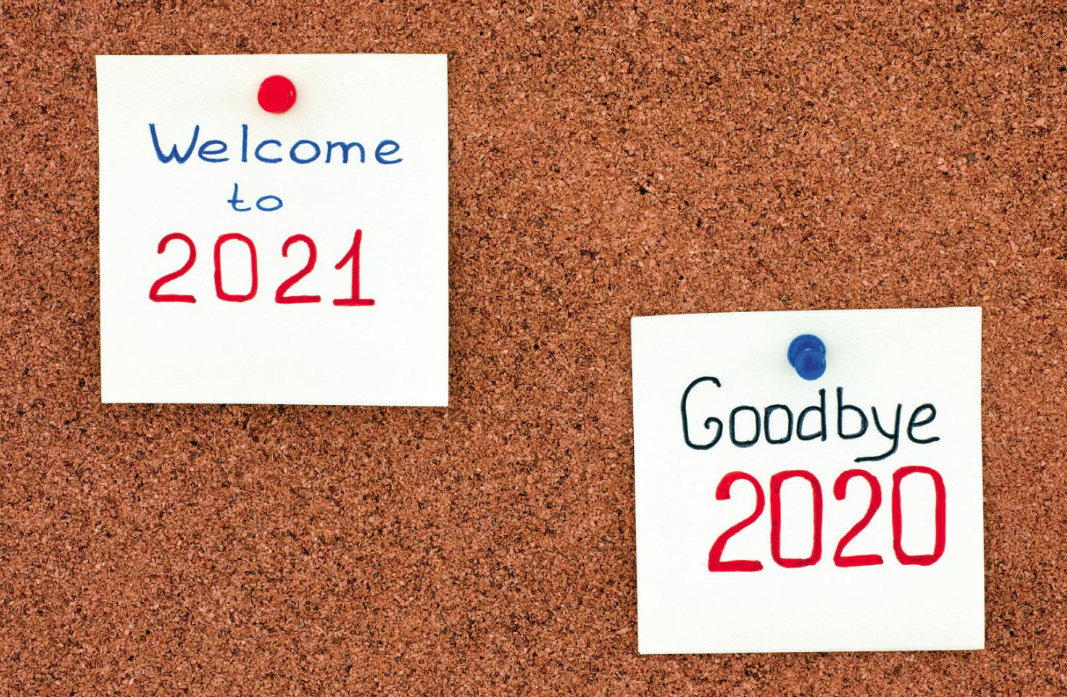
Foreword by Andria S. Lightfoot
This article fulfills my long-standing dream to interview industry giant, Cathleen Schreiner Gates. Cathleen is currently the president and advisory board member to SimpleNexus, and I first came to know Cathleen while she was EVP, sales and marketing at Ellie Mae. As the inaugural recipient of the NEXT Powerhouse Awards, it is no surprise that I have referred to Cathleen as the “Oprah” of mortgage technology due to her larger-than-life presence, way of reaching back to others, and focus on mentoring female leaders within the industry. I asked Pam Faulkner, director of Mortgage Solutions at SimpleNexus to join us in our conversation around the importance of mentoring and giving back. Housing Wire named Pam its “2020 Woman of Influence,” and full disclosure, Pam and I were both part of the EMerge Women’s Leadership foundation Cathleen founded during her time at Ellie Mae. A powerhouse in her own right, Pam has influenced product and mortgage trends as well as many mentees during her illustrious career.
We sat down to discuss their experience mentoring over the years in a candid “Q&A” style format. Their responses ignited within me a renewed passion for giving back. Regardless of the stage you are at in your own career, mentoring is a worthwhile endeavor that impacts both the mentor and the mentee. To mentor, we practice using our emotional intelligence, emphasizing one-on-one dialogue, focusing on empowerment, and relationship building. For mentees, a good mentor will support, guide, and believe in our potential, seeing in us what we cannot yet see within ourselves. Below is a masterclass from two industry standouts. – Enjoy.
ANDRIA
Do you have a mentor in your life that really stands out and what do you most remember about them?
I’ve had several, and they’ve been monumentally impactful to me, but if I think about the characteristics that made them so impactful to my career; there are two important things. The first is safety: feeling that I could bring up any topic, that the person respected me. Experts talk about high performing teams needing psychological safety, but I think mentoring needs absolute safety because you are ideally bringing in issues that could be very controversial. It could be about political dynamics in your organization or where you feel vulnerable or weak or ill prepared for a role, etc.
The second one, which I don’t think many people really understand at the level they should, is perspective. It’s great to have someone that says, okay, you know, you’re overreacting or you’re too focused, or let me give you some reads from other people I work with.
I think of empowerment, to speak your mind! Empowerment to talk about your emotions and feelings as they relate to facts and having that person be honest back with you and tell you you’re right or wrong while being direct about it, but you know, fair. And the number one on my list was trusting this person. Is this person trustworthy? Trust links back to the safety factor. Is this somebody with which I can bring up very controversial topics? And trust them not to, you know, take it, where it doesn’t belong.
ANDRIA:
Cathleen, you started a women’s leadership program during your time at Ellie Mae, and it was hugely impactful for a lot of women in the mortgage and technology space. What was the catalyst to starting that program?
At the time, I was working with HR and other leaders to launch a program, but my fear was that if it were top down, people would feel obligated. So, I kept my ear to the ground, and a couple of women engineers came and knocked on my door and said, “You know, I’ve been part of a ‘lean in’ organization, we have some ideas.” I said, “Great! I am your Huckleberry. Tell me what you need!” And the big thing we did was a design thinking session, so that the very women that it would impact were the designers of what the program would looks like. The women who designed the program were the ones who articulated what they’d been experiencing. We immediately opened the program to everyone. Since we had a huge high-tech presence, we had a lot of people who had immigrated here to America. Without role models in American corporate culture to emulate, they didn’t know how to advocate for themselves. It was a big factor for us to make sure that we had diverse representation. Even though it was inclusive, we never lost focus that the reason we were doing this was to give voice to folks that didn’t know how to really be a part of the conversation. It’s fair to say the lion’s share of those that benefited were women.
It was one of those things that took off so quickly! It brought voices to the table that never really felt like they had a voice, because they felt like they were so immersed in their job, that being able to be heard, outside on something else, wasn’t key to them. I watch people who normally were kind of, you know, shy and not always as boisterous, come up with great ideas. The mentoring program influenced the way that they interacted with their peers. It was amazing to watch that happen.
ANDRIA:
How does a woman looking for a way to connect and find a good mentor early or later in her career go about finding a mentor?
I think a lot of people think there’s a perfect mentor out there. I think you need to find mentoring inside your own organizational construct because you need someone who can give perspective on what you’re experiencing. But I think it’s also very valuable to have someone outside your organization. Don’t think that there is one end-all, be-all mentor; think about what you’re trying to accomplish and then go after what you need.
If you’re waiting for this perfect program to come along, you’re potentially going to be very disappointed. However, so many mentoring opportunities are out there if you simply ask. If there would be one thing, I would leave people with, it would be, don’t wait for the program! Don’t wait for permission. If you’ve identified someone that you think can help you, say “would you mind mentoring me?” If you approach someone, 99 out of 100 times, they will say yes and feel honored.
My best mentors were my bosses. So, I was one of the lucky ones that I had really balanced, intelligent, bosses that sort of brought me along. Not everybody gets that. If you don’t have it, find it! If you want it, ask for it!
Look to your personal relationships. I still go back to the gentleman that I followed in the mortgage industry for 10 years. Even today, I’ll call him out of the blue to ask him questions to get an outside perspective. Having that personal mentor as well as the business mentor is important. All of us need work, but we also need somebody that we can really talk to and get sound advice from.
ANDRIA:
Share with us a success or failure while learning to mentor others. What did you learn about yourself and about mentoring in that process?
I think if somebody is in your management structure, you’re naturally mentoring. I learned a lot from folks came to me from way outside my organizational hierarchies. I had a male engineer come to me and asked me for mentoring. I thought, “What does he think I can offer?” I asked him to complete a one-page summary of where he’s been, who he is, and where he’s going; an exercise I completed many years ago. Over the years, I converted that a little bit. Since then, before I start a mentoring relationship with anyone, I give them this one-page framework and say, “Come fill this out. Talk to me about who you are as an assignment.” What I found is that people underrate their accomplishments and don’t understand their brand or what their impact could be. The exercise helps you to rip away all the posturing and get real.
A thing I look back on is, at some point, your own cockiness might cause you not to listen. That’s one of the most valuable things that I have learned over the years is to shut up and listen! Understand what it is they’re trying to accomplish versus what you have experience doing or maybe not doing that might lend them a better framework for what they’re trying to accomplish. Early on, I didn’t listen that well. My failure was my arrogance. I have tried to temper that throughout my career.
It is why we have two ears and only one mouth, right? We’re supposed to listen twice as long!
ANDRIA:
What are some of the most important dynamic qualities to look for in a good mentor?
First, look for a mentor inside your organization and share where you want to be in three to five years.
Yeah, when you share that with a mentor, now that mentor’s listening for the opportunities that they can bring to your attention. A manager may know your development plans and your performance plans, but a mentor can listen with a very different filter. For example, if I know you want to go a CIO role, even though you might be on an M&A team, if you don’t express that desire or interest, no one knows to think of you. A mentor can start to help land you in these places.
I think one of the toughest aspects of being a mentor is when your employees come to you, and they ask, what’s my next step? How do I get to this level? But you as the mentor don’t have that answer. A good mentor will go get somebody else that can help. Don’t let somebody flounder; help them!
What I would recommend to anyone looking for a mentor is question yourself constantly. What do I want to achieve? What do I want to learn? You’ve got to be curious and want to grow. Mentors support that growth!
ANDRIA:
Cathleen, you were recently quoted by the MBA as saying, “companies are more successful when their people bring a diversity of ideas and experiences to the table.” What last bits of advice would you like to share?
People who need mentoring will come forward and help design it if you give them the right environment.
I also would NOT want people to think that you must be early in your career to have a mentor. Some of the biggest growth I’ve had was later in my career. There’s many stages you go through; I was still getting mentored from someone who could bring me perspective about delegation and empowerment pretty late in my career. So now, you must evaluate what kind of a mentoring relationship do you need to move to the next level. For example, what kind of mentoring do I need to get on a board of directors? What kind of mentoring do I need to be an independent thought leader, or whatever it is you want to do? Being mentored is not just for early in your career!



